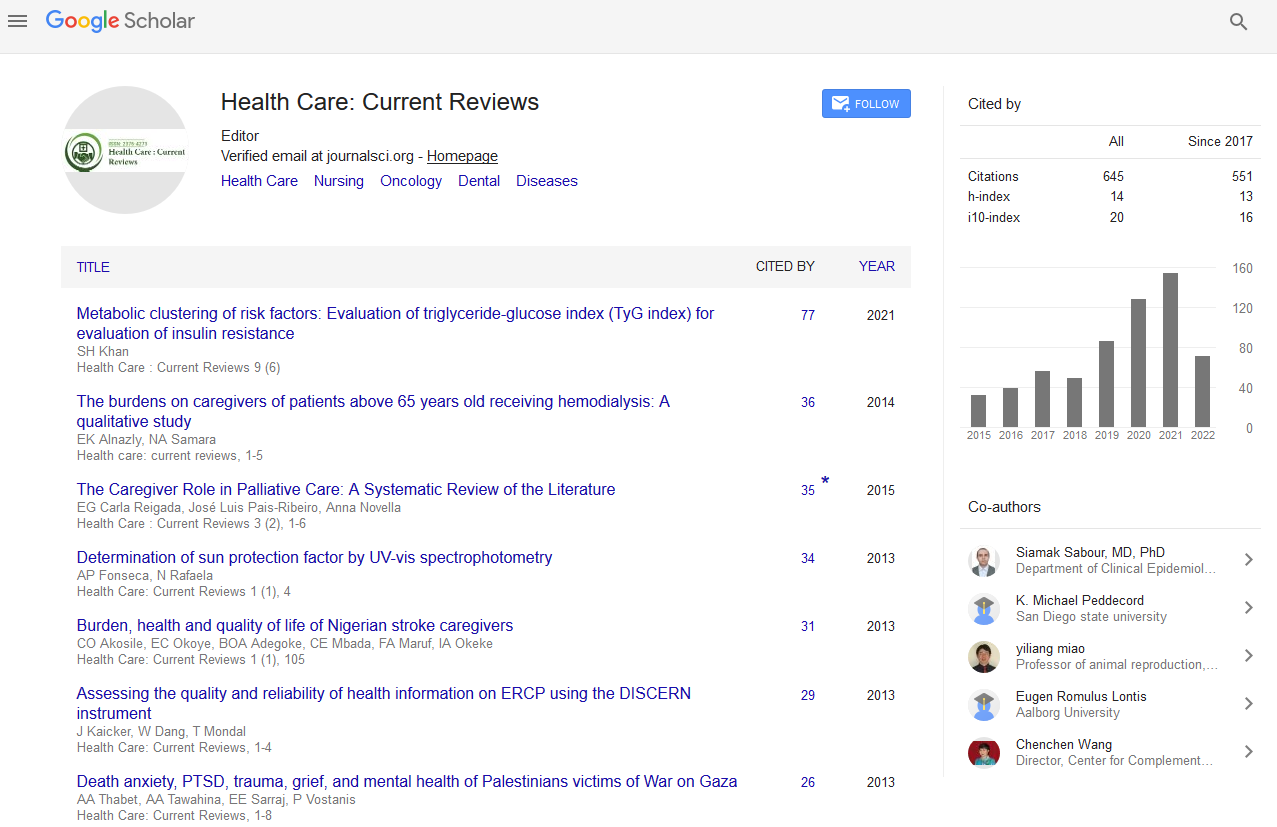PMC/PubMed Indexed Articles
Indexed In
- Open J Gate
- Academic Keys
- RefSeek
- Hamdard University
- EBSCO A-Z
- Publons
- Geneva Foundation for Medical Education and Research
- Google Scholar
Useful Links
Share This Page
Journal Flyer

Open Access Journals
- Agri and Aquaculture
- Biochemistry
- Bioinformatics & Systems Biology
- Business & Management
- Chemistry
- Clinical Sciences
- Engineering
- Food & Nutrition
- General Science
- Genetics & Molecular Biology
- Immunology & Microbiology
- Medical Sciences
- Neuroscience & Psychology
- Nursing & Health Care
- Pharmaceutical Sciences
Redistributive effect of health care financing
3rd Indo-Global Summit & Expo on Healthcare
October 05-07, 2015 New Delhi, India
A M Zakir Hussain
Bongo Bondhu Sheikh Mujib Medical University, Bangladesh
Scientific Tracks Abstracts: Health Care: Current Reviews
Abstract:
The fundamental aim of health care financing is to prevent illness, cure disease, promote health and prevent untimely death through an efficient financial management system. An efficient health financing system should be able to prevent pauperization of the people due to illness, provided there is enough money to manage. Efficiency of management is a complex function and has many facets, one of which is an astute skill of purchasing or providing health care efficiently for the people. Management efficiency depends on what services are procured, at what cost and how payment is made. The way fund is collected, allocated and expended for health care has different effect on type, distribution, availability, depth, quality and accessibility to health care and hence equity implications , an issue, not studied well yet . The elasticity of payment for health is value, context and culture specific, which competes with other types of non-health benefits. While health increases well-being, buying health decreases welfare that could come other-wise from other non-health sources. So payment for one�??s health or for the health of others, which works towards equity, cannot be left to the people entirely. A social camaraderie should be in order. This inclusiveness should translate into redistribution of welfare. The redistribution may be vertical- those who can afford more pay more at prepayment level (e.g., paying tax) or horizontal- people pay unequally even though their affordability is equal at least income-wise for the same benefit. Taxes can either be progressive or regressive in redistributive effect unless a weighted rate or proportionality is applied to ensure the vertical equity.
Biography :
A M Zakir Hussain has obtained his MBBS and MPH from Dhaka University and PhD from University of Hawaii, USA. He was the Director, Primary Health Care & Disease Control, Government of Bangladesh and Regional Advisor, Environmental Health & Climate Change in the South-East Asian Regional Office of WHO. He coordinates a training program for the mid-level health and family planning managers in Bangladesh for the Bongobondhu Sheikh Mujib Medical University, the Premier and the only medical university in Bangladesh. He has drafted the 2000 and 2011 health policies of Bangladesh and the health sector plans from 1997 to 2016. He was the Lead Author for the first ever background paper on nutrition for the next five year plan of Bangladesh.
Email: amzakirhussain@hotmail.com


